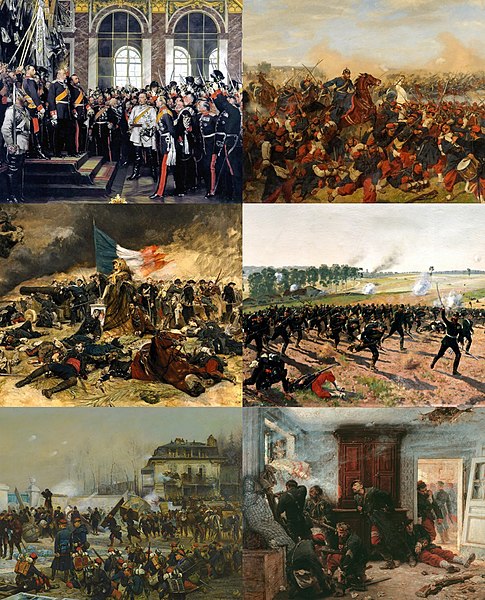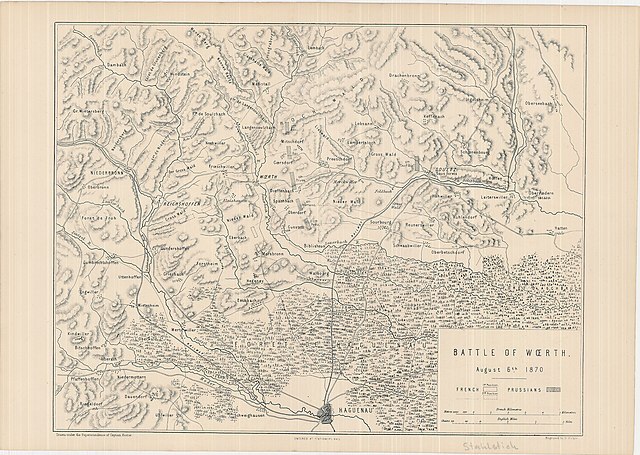The Battle of Wörth, also known as the Battle of Reichshoffen or as the Battle of Frœschwiller, refers to the second battle of Wörth, which took place on 6 August 1870 in the opening stages of the Franco-Prussian War. In the second battle, troops from Germany commanded by Crown Prince Frederick William and directed by his chief of staff, General Leonhard Graf von Blumenthal, defeated the French under Marshal MacMahon near the village of Wœrth in Alsace, on the Sauer River, 10 kilometres (6.2 mi) north of Haguenau.
Battle of Wörth
Battle of Wörth, 1870 (general overview)
Situation at noon.
Württemberg troops attack at Wœrth.
The Franco-Prussian War or Franco-German War, often referred to in France as the War of 1870, was a conflict between the Second French Empire and the North German Confederation led by the Kingdom of Prussia. Lasting from 19 July 1870 to 28 January 1871, the conflict was caused primarily by France's determination to reassert its dominant position in continental Europe, which appeared in question following the decisive Prussian victory over Austria in 1866. According to some historians, Prussian chancellor Otto von Bismarck deliberately provoked the French into declaring war on Prussia in order to induce four independent southern German states—Baden, Württemberg, Bavaria and Hesse-Darmstadt—to join the North German Confederation; other historians contend that Bismarck exploited the circumstances as they unfolded. All agree that Bismarck recognized the potential for new German alliances, given the situation as a whole.

(clockwise from top right) Battle of Mars-la-Tour, 16 August 1870 The Lauenburg 9th Jäger Battalion at Gravelotte The Last Cartridges The Defense of Champigny The Siege of Paris in 1870 The Proclamation of the German Empire
French soldiers drill at IIe Chambrière camp near Metz, 1870
Prussian field artillery column at Torcy in September 1870
Bavarian infantry at the Battle of Wissembourg, 1870







